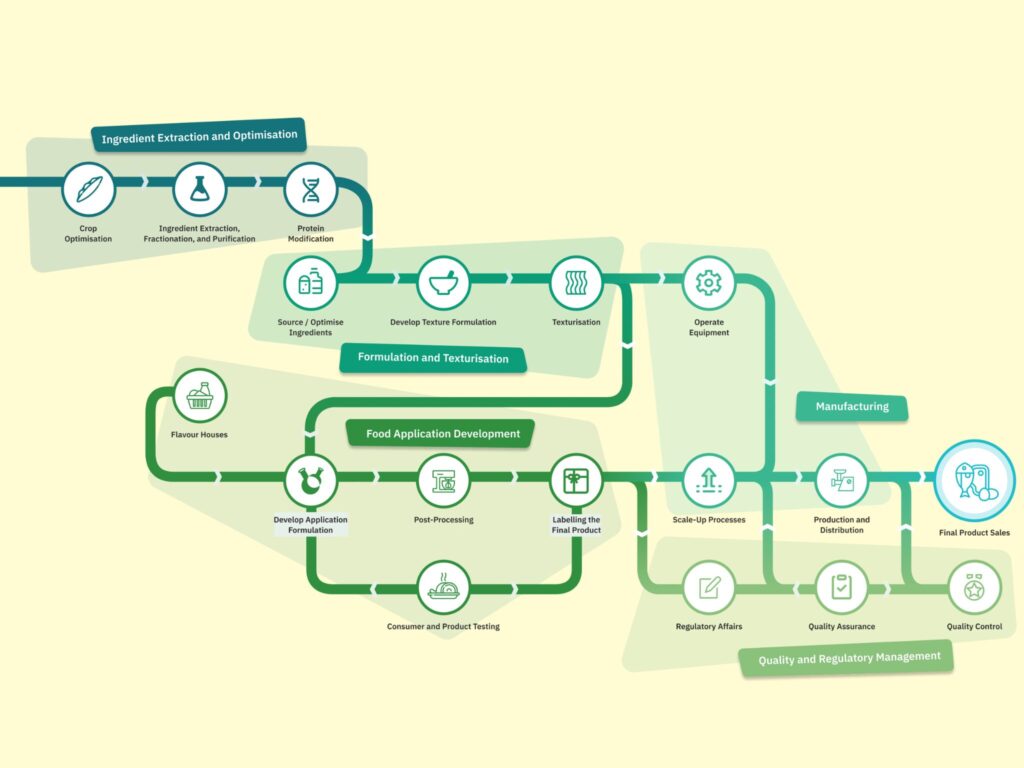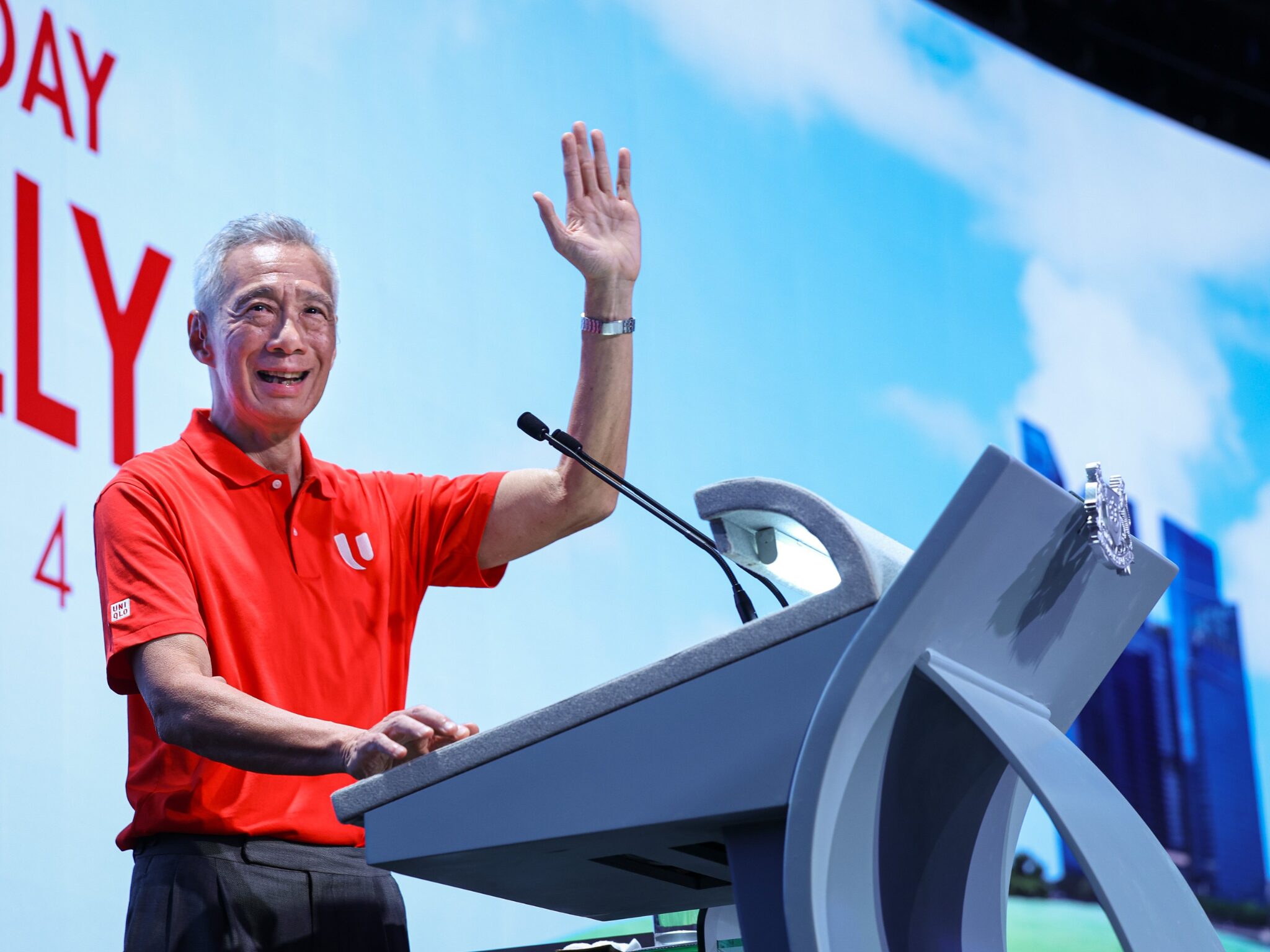Singapore PM Namechecks ‘Novel Food’ in Promising Job Sectors in May Day Speech
5 Mins Read
In one of his final major speeches, outgoing Singapore prime minister Lee Hsien Loong mentioned “novel food biotechnologies” as a promising job prospect – it’s a nod to the country’s food tech pedigree.
In two weeks’ time, Lee Hsien Long will leave office after serving as Singapore’s prime minister for two decades. In that time, Singapore has undergone a transformation, emerging as the global frontier for food tech, thanks to a favourable research, funding and manufacturing environment, and progressive regulations.
In his annual speech on May Day – or Labour Day – at the Marina Bay Sands convention centre this week, Lee highlighted the actions that have brought success to Singapore. In one part of the speech, he touched upon how all parts of the island are equipped with good schools to provide equal opportunities to everyone, regardless of economic status or locale.
This, he highlighted, is why Singapore’s youth or graduate unemployment rates are very low. “Young people take up jobs that did not even exist in their parents’ generation,” he said.
“They become data scientists, machine learning engineers, carbon traders, novel food biotechnologies,” he added, nodding to the country’s flourishing food tech scene. He followed this up with a quick explanation too – “that means you take a plant and you make it look like wagyu beef” – which brought some laughs from the audience.
For Lee to namecheck alternative proteins in a speech about the most promising job sectors, and even go on to highlight what it entails, is reflective of Singapore’s strong standing in the industry. It’s why so many food tech startups flock to the city-state from around the world, and cherry-pick it as the perfect location to go to market.
The career opportunities in alternative proteins
Lee’s speech came just a week after Nurasa, the sustainable food innovation platform of state-owned VC firm Temasek, inaugurated the Food Tech Innovation Centre (FTIC), a hub dedicated to the R&D and scale-up of alternative proteins.
And last month, Singapore saw the opening of a new Future Food Lab at Singapore Polytechnic, an effort to scale up its capacity for novel food manufacturing and attract investments in R&D. It will also support Singapore’s 30 by 30 food security vision – the goal is to have 30% of food produced domestically by 2030 (it’s currently under 10%) – with innovation like low-sodium plant-based meats and high-fibre mushroom protein bars.
This followed the launch of a first-of-its-kind career map for plant-based meat manufacturing in the Lion City, initiated by alternative protein think tank the Good Food Institute (GFI) APAC. It entails ingredient extraction and optimisation, formulation and texturisation, product application development, commercial-scale manufacturing, and quality and regulatory management, with the aim of building a bigger, more skilled workforce that can scale up and lower the costs of future food production.

GFI APAC highlights the job roles involved in these segments, including food technologists, application scientists, and factory operators – underlining the different skillsets and expertise levels that the industry requires. In fact, according to the ClimateWorks Foundation and the Global Methane Hub, the alternative protein sector could support up to 83 million jobs internationally by 2050.
“The city-state’s scientific talent pool is its greatest resource, carefully cultivated by visionary leaders who see not only the career fields that exist now but also those that will drive the economies of the future,” said Mirte Gosker, managing director of GFI APAC.
“Creating a booming business ecosystem requires not only financial investment but confidence that the national strategies spearheaded by various public agencies are aligned with the private sector on an industry’s long-term ambitions,” she added.
Singapore’s food tech prowess
Gosker noted that Lee’s shoutout to novel food biotechnologists is “just the latest signal to alternative protein startups and researchers that Singapore’s leadership is committed to helping them succeed”.
The country was famously the first to approve the sale of cultivated meat, with Eat Just earning it for its Good Meat chicken back in 2020. In March, it greenlit Australia’s Vow too, which is now selling its cultivated quail via a series of restaurant partnerships (it’s currently at Tippling Club). More such approvals are expected, with Israel’s Aleph Farms (which has already been cleared to sell cultivated beef in its home country), Dutch producer Meatable, and French startup Vitalmeat among the companies expecting the go-ahead this year.
But it’s not just regulatory breakthroughs. As community and youth minister Alvin Tan outlined at an agrifood conference in October, the country is a hotbed for food tech, inviting companies to “come to the best place in the world for food innovation”.

GFI APAC similarly labelled the island a “global testbed” for the industry, helping startups incubate, innovate, partner and export their alternative protein innovations internationally. At least 25 non-local companies have a presence in Singapore for R&D and business development, while it’s home to almost a quarter (24%) of all alternative protein startups in Asia-Pacific.
“Despite its small population and lack of natural resources, Singapore is responsible for nearly a quarter of all alt protein scientific publications released in APAC since 2020, and is home to three of the five most active regional research centres,” noted Gosker.
But with Lee leaving his post, will it be a tall order for incoming prime minister Lawrence Wong to maintain the progress built on his predecessor’s 20 years in charge? Gosker doesn’t think so, explaining that policy continuity and progressive change are “key tenets of the Singapore model, which leverages public investments to cumulatively improve citizens’ livelihoods over the short and long term”.
“Singapore puts a high priority on building durable institutions that lift up whole sectors, such as shared-use facilities for alt protein R&D and production that are greater than any individual company or person,” she said. “Prime minister Lee name-dropping novel food biotechnologists in one of his final major speeches is further evidence that leadership in food innovation is now central to Singapore’s national identity.”



